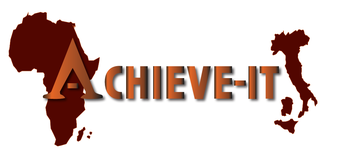Achieve–IT – Academic collaboration for a sustainable and equitable Africa

- Coordinator: University of Parma
- Partner universities: Catholic University of the Sacred Heart, University of Bologna, University of Ferrara, University of Modena and Reggio Emilia, University of Reggio Calabria “Mediterranea”, University of Salento
- Target area: Africa, with a focus on Algeria, Burundi, Cameroon, Cape Verde, Democratic Republic of the Congo, Egypt, Ethiopia, Ghana, Kenya, Mozambique, Niger, Rwanda, Senegal, South Africa, Tanzania, Tunisia
- UNIBO budget: €156,225.99
Achieve–IT supports the presence of Italian universities in Africa by promoting educational cooperation between Europe and Africa through an innovative, sustainable and scalable approach. Part of the AU-EU Innovation Agenda, the project aims to strengthen long-term collaboration in research and higher education across the two continents.
The project involves seven Italian universities and 38 African institutions located across all regions of the continent, for a total of sixteen partner countries. Italian universities are offering 33 Professional Master programmes and 15 PhD programmes taught in English, with activities taking place both in Italy and in Africa, involving 149 incoming and 89 outgoing students.
One of the project’s most significant initiatives is the creation of Advanced Skills Programmes (ASP) for students and teaching staff, with 23 courses across nine thematic areas – 14 of which will be held in Italy and 9 in Africa. These programmes will continue beyond the project’s conclusion and are expected to involve 221 incoming students and 100 outgoing instructors.
Another key component is the development of joint Italy–Africa doctoral programmes, involving 80 researchers and 93 PhD candidates. Research activities will be carried out across both geographic areas, helping to build a stronger foundation for transnational scientific collaboration.
Achieve–IT aims to generate a tangible and lasting impact on academic cooperation between Italy and Africa, by developing an innovative model of international exchange supported by structured funding. This will help build a more inclusive and balanced approach to internationalisation. The project also promotes the creation of a robust academic mobility network, enabling regular exchanges of students and teaching staff and fostering the development of transnational skills and stronger institutional ties between the partner universities.
Finally, the project aims to consolidate long-term academic and scientific partnerships through the signing of at least seven Memoranda of Understanding between partner universities for the supervision of doctoral programmes, opening up new opportunities for collaborative research between Europe and Africa.
